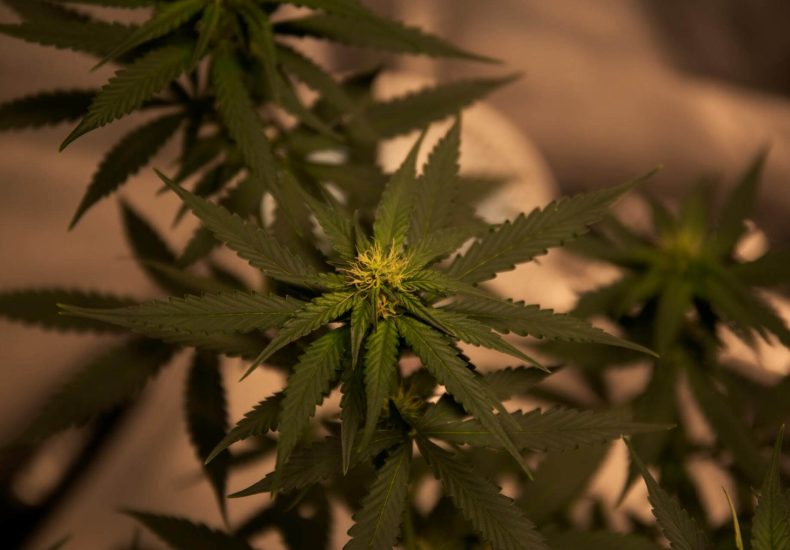 Cannabis
Cannabis
Table of Contents
The evolution of cannabis policy in Thailand is a strange and confusing subject for many. And especially for those in the Thai government. Thailand’s journey with cannabis policy has been a fascinating and transformative one, evolving from stringent prohibition to progressive legalization, particularly in the context of medical and, more recently, recreational use.
This evolution is not just a local phenomenon but mirrors a global reevaluation of cannabis laws, reflecting changing societal attitudes, economic considerations, and a better understanding of the plant’s potential benefits and risks. This article explores the historical context, recent updates, and anticipates future trends in cannabis policy in Thailand, offering insights into the broader implications for public health, the economy, and social justice.

Historical Context of Cannabis Policy in Thailand
For decades, Thailand’s stance on cannabis was marked by strict regulations. Rooted in the Narcotics Act of 1979, cannabis was classified as a Category 5 narcotic, aligning with a global trend towards the war on drugs. The evolving nature of the cannabis policy in Thailand is what makes things so confusing.
The possession, sale, and use of cannabis were illegal, with violators facing severe penalties, including heavy fines and imprisonment. This approach was driven by international drug control treaties and a widespread perception of cannabis as a dangerous substance with no medical or social value.
Shift Towards Medical Legalization
The initial shift of cannabis policy in Thailand began with the acknowledgment of the plant’s medical benefits. In 2018, Thailand made a historic move by becoming the first Southeast Asian nation to legalize cannabis for medical and research purposes. This amendment to the Narcotics Act was a significant departure from the past, driven by advocacy from patients, healthcare professionals, and a growing body of scientific research supporting cannabis’s efficacy in treating various medical conditions, such as chronic pain, epilepsy, and cancer symptoms.
The legalization of medical cannabis in Thailand was not merely symbolic. It laid the foundation for a regulatory framework that allowed for the controlled cultivation, import, export, possession, and use of cannabis for health and scientific research. This pivotal decision marked the beginning of a new era in Thailand’s approach to cannabis, emphasizing compassion, innovation, and the potential for medical advancements.
Decriminalization and the Path to Recreational Use
Building on the momentum of medical legalization, Thailand took further progressive steps by decriminalizing the cultivation and possession of cannabis in 2021. This move towards decriminalization represented a significant shift in the country’s drug policy, signaling a more nuanced understanding of cannabis and its potential benefits beyond the medical sphere.
Decriminalization allowed individuals to grow cannabis plants at home for personal use, subject to registration with the authorities. This cannabis policy in Thailand change was also a strategic move to stimulate economic opportunities in agriculture, manufacturing, and tourism, recognizing the potential for cannabis to contribute to economic growth and development.

Economic Implications and Regulatory Challenges
The liberalization of cannabis laws in Thailand has unleashed a wave of economic possibilities. The agricultural sector, in particular, has seen a new avenue for income generation, with farmers now able to legally cultivate cannabis. The burgeoning cannabis industry also promises to spur growth in related sectors, such as pharmaceuticals, cosmetics, and health tourism, attracting both domestic and international investment.
However, these economic opportunities are accompanied by regulatory and societal challenges. The Thai government faces the task of developing a comprehensive regulatory framework that balances economic development with public health and safety. Key issues include establishing clear guidelines for licensing, production standards, product labeling, and advertising, as well as addressing concerns related to the potential for recreational abuse.
Future Trends and Global Implications of Cannabis Policy in Thailand
Looking forward, several trends are poised to shape the evolution of cannabis policy in Thailand. An expansion of the legal and regulatory framework is anticipated, with more detailed guidelines expected to emerge around cultivation, processing, distribution, and consumption practices. This legal evolution will likely be accompanied by increased research and development efforts, focusing on cannabis’s medical applications and the optimization of agricultural and manufacturing processes.
Technological innovation will play a critical role in the industry’s growth, from advanced cultivation techniques to the development of new cannabis-based products. Moreover, as the global landscape of cannabis policy continues to evolve, Thailand is likely to engage in increased international collaboration, sharing knowledge, and best practices with other nations navigating the complexities of cannabis legalization and regulation.
Societal Impact and Public Health Considerations
The evolving cannabis policy in Thailand also has profound implications for societal attitudes and public health. The decriminalization and legalization of cannabis for medical and, to a lesser extent, recreational purposes, have initiated a significant shift in public perception. Where once cannabis was viewed through a lens of criminality and substance abuse, it is increasingly recognized for its therapeutic benefits and as a subject of legitimate scientific inquiry. This transformation has the potential to reduce stigma around cannabis use, particularly for medical patients who benefit from its applications.
Public health considerations are central to the ongoing development of cannabis policy. The Thai government is tasked with ensuring that the broader accessibility of cannabis does not lead to increased substance misuse or adverse health outcomes. Educational campaigns play a crucial role in this, aiming to inform the public about safe cannabis use practices, understanding dosages, and recognizing the differences between medical and recreational consumption.
As the legal framework around cannabis continues to evolve, a focus on harm reduction, evidence-based policy, and public health education will be essential to navigate the complexities of this new landscape. Balancing economic growth with the safeguarding of public health will be paramount, ensuring that the journey towards cannabis liberalization benefits all segments of Thai society.
Will There Be Cannabis Policy in Thailand Changes in 2024?
The evolution of cannabis policy in Thailand represents a significant shift from prohibition to a more progressive, nuanced approach that recognizes the plant’s medical, economic, and social value. As Thailand continues to navigate this evolving landscape, the future of cannabis policy appears promising, with potential benefits spanning public health, economic development, and social justice.
However, achieving these benefits will require a careful balance of innovation, regulation, and education, ensuring that the expansion of the cannabis industry is responsible, sustainable, and aligned with the well-being of Thai society. As Thailand charts its path forward, it serves as a case study for other countries exploring the complex dynamics of cannabis policy reform, offering valuable lessons on the challenges and opportunities that come with embracing this ancient plant in the modern world.


